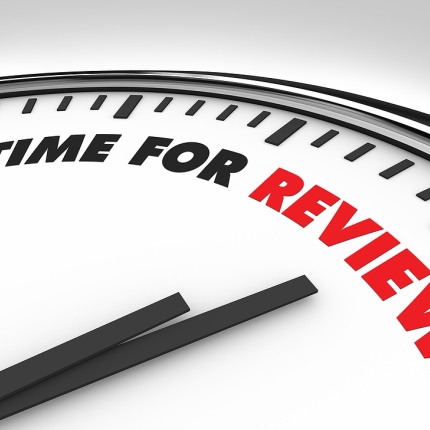7 Secrets Every Rich Person Knows
 It might seem like the rich know something about money that the rest of us don’t.
It might seem like the rich know something about money that the rest of us don’t.
After all, the richest one percent of people now hold half of the world’s wealth, according to the Credit Suisse Global Wealth Report.
Maybe the rich do have secrets to accumulating wealth, but that doesn’t mean what they know has to remain a mystery.
Here are seven things every rich person knows that you can use to build your own wealth.
1. Spending Must Align With Goals
“They know what they care about,” Kay said. “Maybe it’s passing wealth to another generation, maybe it’s attaining a particular lifestyle. They are mindful of not wasting resources on things that have no value.”
According to Kay, the wealthy only seem to spend money on things that they care about. The rest of us can learn from this by setting our own goals and then monitoring our spending to see if it aligns with those goals.
“Are you really spending in accordance with what you value?” asked Kay. “Do the beliefs and realities jive?”
2. Don’t Waste Money To Impress Others
Most rich people don’t spend their time and money trying to impress others.
“They are not in a race,” said Kay. “They know they have made it, so their attention is not on what others think.”
In fact, many wealthy individuals wouldn’t have become rich if they had spent their hard-earned money buying things to keep up with others, he said. Living below their means and rejecting big-spending lifestyles are key secrets of America’s wealthiest individuals, according to the bestselling book, “The Millionaire Next Door.”
Spending money to appear rich before you actually are is a surefire way to sabotage your wealth goals. So, forget about the Joneses and focus on what matters: accumulating your wealth in the coming years.
3. Have Plenty Of Liquidity
The rich make sure they have sufficient liquidity, or cash, to cover their short-term needs.
“They don’t have to disrupt their life for an unexpected occurrence,” said Kay, because they have an emergency fund.
The fact that rich people have money set aside for rainy days isn’t solely a function of their wealth. They have cash reserves because they are disciplined enough to save.
Everyone should aim to build an emergency fund with enough cash to cover six to nine months of expenses, Kay said. However, you don’t have to set that much aside all at once. You just need to be working toward that goal with every paycheck. With that in mind, you should arrange to have a set amount automatically transferred from your checking account to savings each month.
“Like anything else, it’s a goal,” said Kay. “It only makes you a failure if you’re not working on it.”
4. Costs Matter
Unexpected costs and fees can easily eat away at your wealth.
“Wealthy people understand every fee they pay means less money in their pockets,” said Taylor Schulte, CEO of Define Financial in San Diego.
In particular, the rich pay attention to investment fees — something that many people overlook. For example, more than half of workers don’t know they’re paying fees on their workplace retirement savings accounts, according to a study by the National Association of Retirement Plan Participants. Yet, those fees can eat away at your returns, said Schulte.
“The more you’re paying in mutual fund fees or transaction fees means less money in your pocket,” Schulte said.
Even small fees can have a big impact. If you invest $100,000 over 20 years and pay a 1 percent annual fee, your portfolio value will be about $30,000 less than if you had paid a 0.25 percent annual fee, according to the Securities and Exchange Commission’s Office of Investor Education and Advocacy.
Check your account statement to see what fees you’re paying. If they seem high, the SEC’s Office of Investor Education and Advocacy recommends asking whether the costs can be reduced. You should also shop around for accounts and investment firms with low fees. Then, you’ll be able to keep more of the money you worked hard to save.
5. Asset Location Is As Important As Asset Allocation
If you’ve read anything about investing and saving for retirement, you’ve likely encountered advice about asset allocation — having the right mix of investments, rather than putting all of your money in just one asset. However, the rich know that asset location is just as important as asset allocation, said Schulte.
“The rich don’t keep all of their assets in one type of account, such as a tax-deferred retirement savings account. Wealthy people also have investments in brokerage accounts to limit the impact of taxes in retirement,” Schulte said.
You can earn an upfront tax benefit by contributing to a 401k or similar plan because contributions come out of your paycheck before taxes — lowering your taxable income — and the money grows tax deferred. But when you withdraw that money in retirement, it will be taxed at your regular income tax rate — which is currently as high as 39.6 percent for the wealthiest taxpayers.
You don’t get any tax breaks by investing in stocks, bonds or mutual funds through a brokerage account. But if you hold those investments for more than a year, they’ll be taxed at the long-term capital gains rate, which ranges from 0 percent to 20 percent but tops out at 15 percent for most taxpayers.
“The types of investments you have in your accounts can have a dramatic effect on your long-term returns,” said Schulte. “Typically, it’s best to keep securities, such as bonds, mutual funds and dividend-paying stocks, in tax-deferred retirement savings accounts and individual stocks in brokerage accounts.”
6. Year-Round Tax Planning Is Crucial
The rich don’t wait until April to start thinking about their tax returns. They take steps throughout the year to lessen the impact of taxes, said Kay. With the help of tax professionals, the wealthy also avoid making costly tax mistakes. Additionally, the wealthy protect their savings by making charitable contributions throughout the year — gifts of cash, goods or both, said Kay. If you itemize on your tax return rather than take the standard deduction, you can deduct charitable contributions to qualified organizations. The more you deduct, the more you reduce your taxable income.
“Charitable giving is an excellent tool to mitigate tax consequences,” said Schulte. “The wealthy know this, and you don’t have to be wealthy to do it.”
Whether you write a check to your favorite charity or donate clothes you no longer wear to Goodwill, hang on to your receipts and claim your charitable deduction. Or, be more strategic with your giving by setting up a donor advised fund, said Schulte. These simple, low-cost funds are available through investment firms and allow you to get a tax deduction at the time you set aside money in the account. Then you can make grants on your own timeframe.
7. It’s Important To Hire Advisors
Wealthy people surround themselves with knowledgeable tax, legal and financial professionals. To increase your odds of accumulating wealth, don’t assume you need to be rich to hire an advisor. On the contrary, investing in a support system now can help you achieve the wealth you desire down the line.
“If you keep using money as the reason you can’t get on the right track, you will keep making the same mistakes,” said Kay. “[The wealthy] don’t try to do it all themselves.”
Don’t skimp by hiring a novice advisor, either. Kay recommends hiring the best person you can afford, so you’re not wasting money on bad advice. You can locate a fee-only financial planner near you at NAPFA.org, the website of the National Association of Personal Financial Advisors.
Source: Las Vegas Review-Journal


